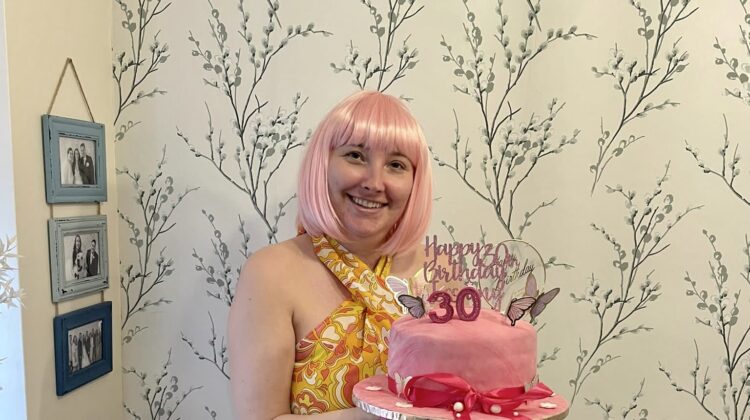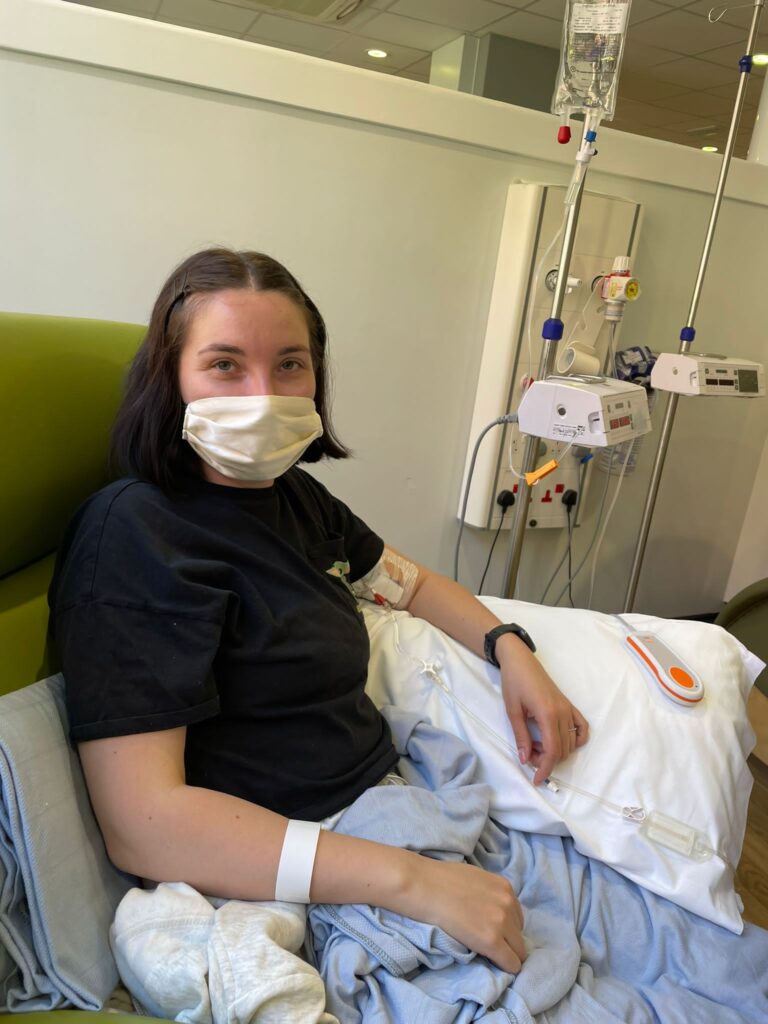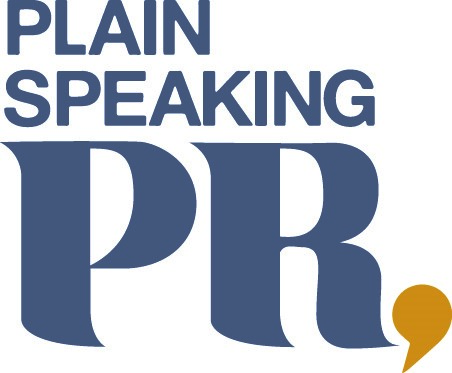
Jessamy Pearce was diagnosed with breast cancer at the age of 29. Here, she explains why she has signed up for not just one but three cancer research studies happening at Ipswich Hospital
For 29-year-old Jessamy Pearce, it was a television show that reminded her to check her breasts. She found a lump and didn’t delay using her GP’s self-referral system to the team at Ipswich Hospital. Jessamy was seen within two weeks, and it was confirmed the lump was cancerous. Treatment began which will include chemotherapy, surgery as well as immunotherapy and radiotherapy.
Jessamy, who works in administration for a solicitors’ firm, says: ‘I was watching Firefly Lane on Netflix and one of the characters had breast cancer. It made me think I should check and that’s when I felt something in my own breast.
‘At the hospital I had a mammogram and a biopsy taken and was then told it was cancer. It’s a strange experience – I remember suddenly seeing so many people and given so much information.’

Jessamy, who is married to Sam, said the lump is 2.3cm in diameter but will be removed by surgery once her chemotherapy sessions finish.
‘Sam has been great – he shaved his head too when I lost my hair and comes to all my hospital appointments,’ she adds. ‘The tiredness has been extreme through chemo and I have a strange taste in my mouth.’

Jessamy was happy to have all the treatment available, and also signed up for not just one but three cancer research studies happening at the hospital.
She says: ‘It’s still strange thinking about being diagnosed. I was at my fittest and healthiest when I found out, but I agreed to everything to treat it.
‘I was more than happy to say yes to the research studies. I thought if I can help someone else in the future then that’s the right decision to make.’
Jessamy, who was diagnosed in May and has since turned 30, is now a research participant on the Personalised Breast Cancer Programme, the Vinehealth app study and ICI Genetics.
The Personalised Breast Cancer Programme is a study where DNA is sequenced from the participant’s blood and breast cancer to see if there are any genetic changes that would alter treatment. The Vinehealth app study is looking at the support an app can give patients through their treatment, allowing them to easily track and understand symptoms, appointments and medication. The ICI Genetics study is led by the University of Birmingham and recruits patients nationwide to look at the genetic factors involved in toxicity to immunotherapy.
Jessamy says: ‘I’m interested to see what will come out of the genetic research and I’ve been using the app every day to add in my symptoms, temperature and even emotions.’
Senior clinical research practitioner Paul Ridley is part of the ESNEFT cancer research team. He says: ‘We’re very grateful to Jessamy for being on not just one but three studies. We acknowledge patients have a lot to cope with from their diagnosis and treatment and research participation can mean additional tests and questionnaires.
‘However, research is vital to improve patient outcomes. Participation can benefit the individual and also, as Jessamy has said, help someone else in the future.’
Jessamy has chosen to share her story about her experience and her involvement in the three research studies.
Anyone with a concern about their breasts should speak to their GP. Symptoms of breast cancer include finding a lump, discharge from either nipple, a change in the size or shape of one or both breasts, swelling in an armpit, dimpled skin, a rash or a change in the appearance of your nipple, such as becoming sunken into your breast. Visit esneft.nhs.uk.
All featured images supplied by East Suffolk and North Essex NHS Foundation Trust









Leave a Reply